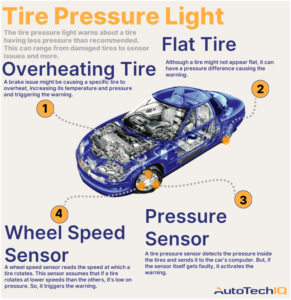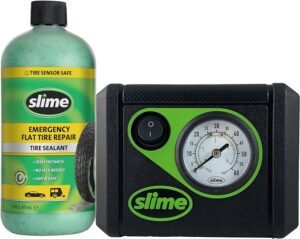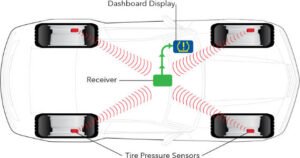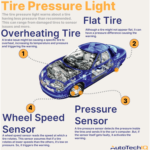Winter tires are not suitable for summer use due to their soft rubber composition that wears quickly in heat. The tires are designed for cold conditions and compromise on performance in warm weather.
Driving safety is a top priority for any vehicle owner, and using the right tires is a critical part of that. Winter tires, also known as snow tires, have a specialized design that provides improved traction, braking, and handling in snowy, icy, or cold conditions.
They are made from a compound that remains soft in cold weather, ensuring they grip the road better as temperatures drop. However, once the temperature rises, this same soft rubber compound can become too pliable, leading to accelerated wear and potentially hazardous driving conditions. Shifting to summer or all-season tires when the weather warms up is essential, as these are optimized to handle hot asphalt and provide durability for the season’s road conditions. It’s not just about safety; using the correct tires also ensures better fuel efficiency, reduced tire replacement costs, and overall better vehicle performance.

Credit: www.walmart.com
The Basics Of Winter Tires
As temperatures drop and snow begins to fall, winter tires become crucial for safe driving. Unlike regular tires, winter tires specialize in tackling snowy and icy roads. They ensure your vehicle maintains grip when the weather gets tough. But driving on winter tires during summer can cause problems. Let’s dive into what makes winter tires so unique and why they’re not fit for summer roads.
Unique Design Features
Winter tires come with unique features tailored for cold climates. You’ll find these aspects only in tires meant for icy conditions:
- Deep treads – These create channels for snow and slush to pass through, preventing snow build-up.
- Special sipe patterns – Tiny slits in the tread improve traction on ice.
- Biting edges – These edges grab onto icy surfaces for better control.
Compounds Suited For Cold
Winter tires feature rubber compounds that stay flexible in cold weather. In warm conditions, they become too soft. This softness on hot pavement leads to:
- Quicker wear and tear
- Reduced fuel efficiency due to increased rolling resistance
- Poorer handling and braking performance in warm temperatures
Summer Heat Vs. Winter Tires
The summer sun brings joy to many, but for your winter tires, it’s a different story.
As temperatures rise, winter tires face challenges they’re not designed to handle.
Driving on winter tires in summer heat is like wearing a heavy coat on a hot day – not suitable, and it can be bad for the tires.
Effects Of High Temperatures On Rubber
Winter tires are built with a special rubber meant for cold weather.
When it’s hot outside, this rubber gets too soft and may not work well.
Let’s break down the impact:
- Soft rubber can lose shape under pressure.
- This causes more friction and could lead to overheating.
- Overheating can damage the tire and risk your safety.
Increased Wear And Tear
Winter tires in the summer don’t last as long.
Soft winter tire rubber wears down faster on hot roads.
| Winter Tires | Summer Tires |
|---|---|
| Designed for ice and snow | Made for heat and dry roads |
| Soft rubber degrades quicker | Harder rubber resists wear |
Using winter tires in summer means more frequent replacements are needed.
You’ll end up spending more money in the long run.
Safety Concerns With Year-round Winter Tire Use
Safety concerns come to the forefront when considering year-round winter tire use. While these tires offer unmatched grip in icy conditions, they aren’t built for summer’s heat.
Tire Failures And Blowouts
Winter tires are designed with a soft rubber compound which remains flexible in cold weather. In summer, high temperatures cause this rubber to become too soft, leading to increased wear and the potential for tire failures and blowouts.
Compromised Braking And Handling
In warm weather, the soft rubber of winter tires can hinder braking. The overheated rubber fails to provide the necessary road grip, causing longer stopping distances and compromised handling. These changes can dramatically affect driving safety.
Economic Impacts Of Improper Tire Use
When summer rolls in, using winter tires can hit your wallet hard. Here’s why sticking to season-appropriate tires matters in terms of economics.
Reduced Fuel Efficiency
Winter tires in summer burn more gas. Why? Their soft rubber and deep treads grip snow well. In heat, they cause extra resistance. This means your car works harder, guzzling more fuel. The result is simple – you spend more money at the pump.
Frequent Replacement Costs
Think of it like this – winter tires wear down faster on hot pavement. If you keep them on, they’ll need replacing sooner than they should. This can lead to buying a new set every season, which is both unnecessary and expensive.
Tire Use Cost Comparison Table
| Tire Type | Summer Use | Expected Replacement | Cost Over 5 Years |
|---|---|---|---|
| Winter Tires | Not recommended | 1-2 years | Significantly higher |
| Summer Tires | Recommended | 3-5 years | More economical |
Talking money, proper tire use means savings in the long run. Avoid unnecessary costs by matching tires to the season.
The Performance Gap In Traction
The Performance Gap in Traction points to significant differences in how tires behave under different weather conditions. Using winter tires in the summer can lead to reduced performance and safety. This section delves into why winter tires don’t provide the optimal experience on summer roads. Different aspects affect traction, namely dry and wet grip and the risk of hydroplaning.
Suboptimal Dry And Wet Grip
Winter tires are made from a specialized rubber compound. This compound stays soft in cold weather. It provides excellent grip on snow and ice. During summer, the same compound becomes too soft. This causes a few problems:
- Reduced Stability: The soft rubber deforms more easily. This affects handling and stability.
- Faster Wear: The tires wear out quickly, reducing their lifespan.
Winter tires also feature deeper tread patterns. These are great for biting into snow but reduce the contact patch on dry roads. Less rubber touching the road means less grip.
Wet roads present their own challenges. Winter tires do not expel water as effectively in summer conditions. The outcome is a longer stopping distance and decreased cornering ability.
Risk Of Aquaplaning
Aquaplaning is when a tire cannot displace water fast enough, leading to a loss of traction. This dangerous phenomenon becomes a higher risk with winter tires in the summer. Let’s look at why:
- Deep Grooves: Meant for snow, not standing water. They do not channel water away effectively at higher speeds.
- Soft Tread: Deforms easily, reducing the tire’s ability to maintain contact with the road.
Winter tires are optimized for cold, not for the heat and rain the summer brings. Stay safe by switching to proper season-specific tires.
Warranty And Legal Implications
Understanding the ‘Warranty and Legal Implications’ of using winter tires in summer is crucial. It maintains vehicle performance and safety. It also keeps you legally compliant. Let’s delve into specifics that every driver must know.
Voided Manufacturer Guarantees
When you use winter tires in summer, you risk voiding your vehicle’s warranty. Manufacturers specify tire types for each season. Using the wrong tires can affect your car’s handling and safety features. Below are aspects where winter tire usage can nullify guarantees:
- Wear and tear on non-season-specific parts
- Damage caused by overheated winter tires
- Poor performance impacts caused by inappropriate tire usage
Check your vehicle’s manual or warranty document carefully. It will detail the tire requirements. Avoid expensive repairs by adhering to these guidelines.
Legal Repercussions In Some Regions
Some regions have strict laws about tire usage, with hefty fines for non-compliance. Winter tires in summer may breach these laws. Key points include:
- Road safety regulations
- Season-specific tire legislation
- Traffic fines for improper tire use
Ensure you’re aware of local tire laws before choosing to keep winter tires on your vehicle during warmer months. In some areas, it’s a legal requirement to change tires according to the season.
Always prioritize safety and legality when it comes to your vehicle’s tires. Stick to manufacturer guidelines and local laws to avoid issues.
Real-life Scenarios
Summer driving brings a unique set of challenges and requirements for your vehicle’s tires. Using winter tires during this warm season could lead to potential hazards and a less than optimal driving experience. Let’s dive into some real-life scenarios where the proper tire choice could have made all the difference.
Real-life Scenarios Firsthand AccountsFirsthand Accounts
Many drivers have shared their stories about using winter tires in summer. Their experiences underscore potential problems associated with this practice:
- Increased braking distance. John from Colorado noticed his car took longer to stop.
- Poor handling. Lisa from Arizona felt her car was not as responsive.
- Rapid wear. Mike from Florida observed his winter tires wore down quickly.
Studies And Statistics On Accidents
Research reveals that winter tires in summer can lead to mishaps. A study shows:
| Aspect | Impact |
|---|---|
| Braking Distance | Increases by up to 15% |
| Handling | Decreases, raising accident risk |
| Tire Life | Reduces significantly |
Statistics further point out that accident rates rise when drivers fail to switch to appropriate summer tires.
Making The Right Tire Choice
Making the Right Tire Choice is crucial for ensuring your vehicle remains safe and performs well in various weather conditions. Different tires are designed to operate optimally in specific temperatures and road conditions. Choosing the wrong tires for a season can lead to decreased performance, higher fuel consumption, and even safety risks.
Selecting Season-appropriate Tires
Winter tires are not made for summer roads. Their soft rubber compounds remain flexible in cold temperatures but will wear quickly when it’s warm. This results in poor handling and reduced fuel efficiency. In contrast, summer tires feature a harder compound that stands up to heat without getting too soft, providing better grip and longevity during summer months. Here are key points for selecting the right tire for each season:
- Winter Tires: Best for temperatures below 45°F (7°C).
- All-Season Tires: Manageable in mild winter and summer conditions.
- Summer Tires: Optimal for warm weather and wet roads.
Understanding Tire Rotation And Storage
Regularly rotating your tires helps achieve uniform wear, which in turn extends the life of your tires. Winter tires should be swapped out as the season changes to avoid rapid deterioration.
Proper storage is also essential. Keep your winter tires in a cool, dry place, shielded from direct sunlight. Stack them horizontally or hang them properly to maintain shape and prevent damage. Here’s how to store them correctly:
| Storage Tip | Explanation |
|---|---|
| Clean Before Storing | Remove dirt and grime to prevent corrosion. |
| Avoid Sunlight | UV rays can deteriorate rubber over time. |
| Room Temperature | Avoid extreme temperatures that can affect tire integrity. |
| Don’t Stack Heavy Items | Prevents deformation and stress on tires. |
Professional Recommendations
Wondering why winter tires aren’t for summer roads? Experts chime in on this essential safety tip. Driving with the wrong tires can be a slip-up—quite literally. Let’s see what pros have to say.
Advice From Auto Mechanics
Auto mechanics urge drivers to switch tires as seasons change. Winter tires have a special purpose: they grip snow and ice. But in summer, these tires get too soft. This can lead to:
- Longer stopping distances,
- Poor handling,
- Increased wear and tear.
Mechanics stress, using winter tires in summer can risk your safety and hit your wallet hard.
Tips From Tire Manufacturers
Tire manufacturers share insights on tire material. Winter tires are designed with a softer rubber compound. This compound stays pliable in cold. But in the summer, it:
- Becomes too soft,
- Wears down quickly,
- Affects fuel efficiency.
Tire makers recommend checking tire pressure and following seasonal tire change guidelines for best performance.

Credit: www.goodreads.com
Embracing Seasonal Changeover
When seasons turn, tire changes become essential for safe driving. Many drivers question the need to switch from winter to summer tires as temperatures rise. Yet, using winter tires during hot months can lead to quicker wear, reduced grip, and potential safety risks. Embracing the seasonal changeover not only preserves the integrity of your winter tires but also ensures optimal performance and safety on the road.
Step-by-step Guide
Switching your tires according to the season is a straightforward process. Follow these steps:
- Check the forecast: Ensure no more cold snaps are predicted.
- Gather your tools: You’ll need a jack, lug wrench, and your summer tires.
- Loosen lug nuts: Do this before lifting the vehicle.
- Lift your car: Securely use the jack under your car’s designated points.
- Swap the tires: Remove winter tires and fit the summer ones.
- Tighten lug nuts: Do not over-tighten; follow the recommended torque.
- Lower the car: Bring your car back down safely.
- Check pressure: Inflate summer tires to the proper psi levels.
Service Centers And Diy
Drivers have two choices for tire changeover: professional service centers or do-it-yourself (DIY) at home.
| Service Centers | DIY |
|---|---|
| Experts handle the process | You need some basic mechanical skills |
| Potentially higher cost | Cost-effective solution |
| Convenient, especially for busy people | Takes time, but offers flexibility |
| Storage options for off-season tires | Requires space at home for tire storage |
Remember, choosing between a service center and DIY depends on your comfort level with vehicle maintenance and available time.

Credit: www.cleanharleys.com
Frequently Asked Questions For Why Can’t I Use Winter Tires In The Summer
What Happens If You Use Winter Tires In The Summer?
Using winter tires in the summer leads to faster tread wear, reduced grip, and longer stopping distances. It can also increase fuel consumption due to the softer rubber compound designed for cold weather.
How Hot Is Too Hot For Winter Tires?
Winter tires start to lose effectiveness at temperatures above 45°F (7°C). For optimal performance and safety, avoid using winter tires in warmer conditions.
Can You Use Snow Tires When It’s Not Snowing?
Yes, you can use snow tires in dry conditions, but they wear faster and offer less grip than regular tires on clear roads. It’s best to switch to all-season or summer tires when the snow melts.
Are All Season Tires Ok For Summer?
All-season tires are suitable for summer as they provide a balance of wet and dry performance in warm conditions.
Conclusion
To sum up, using winter tires in summer is a no-go. They wear down quickly on hot pavement, compromising safety and efficiency. Always switch to summer or all-season tires when temperatures rise. Remember, the right tires are key to a smooth, secure, and cost-effective drive.
Safe travels!




















